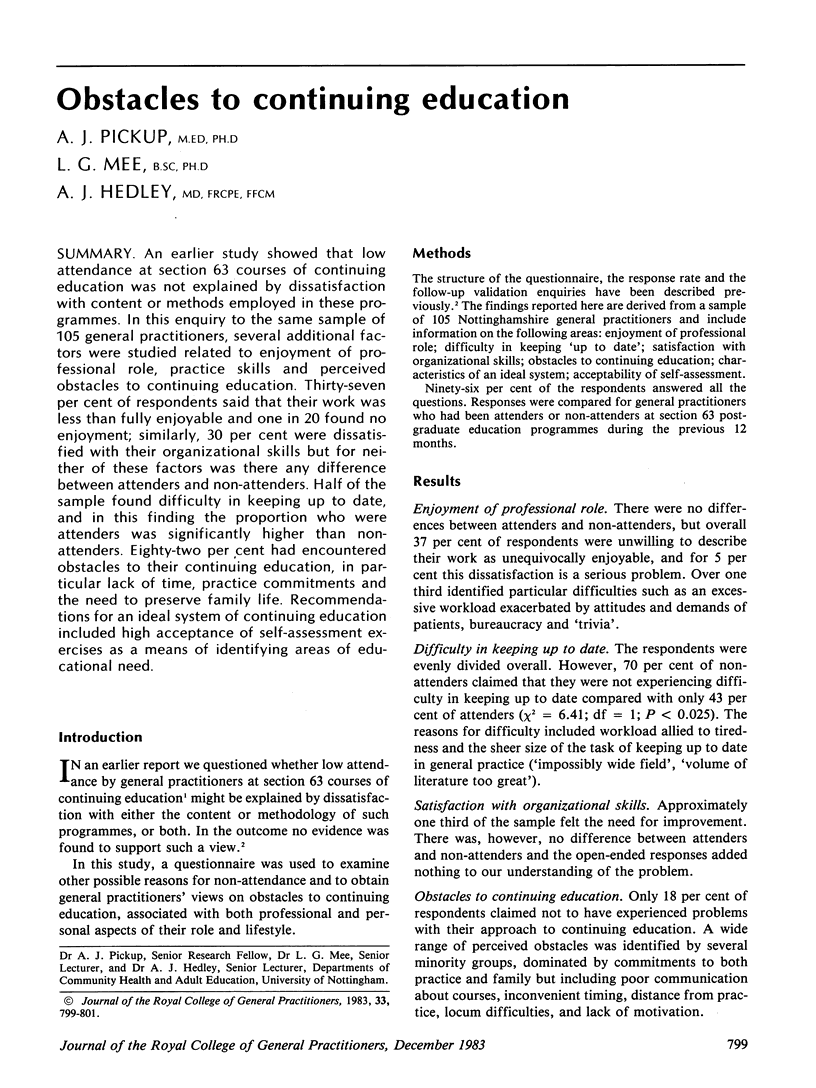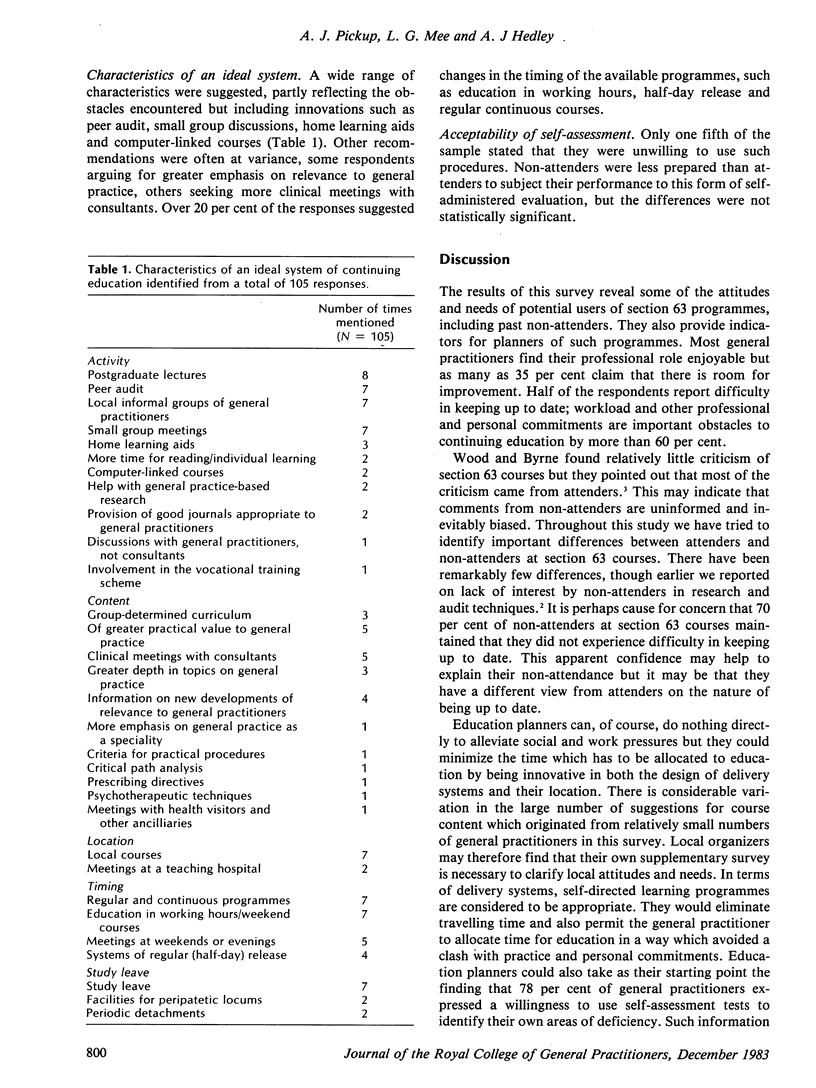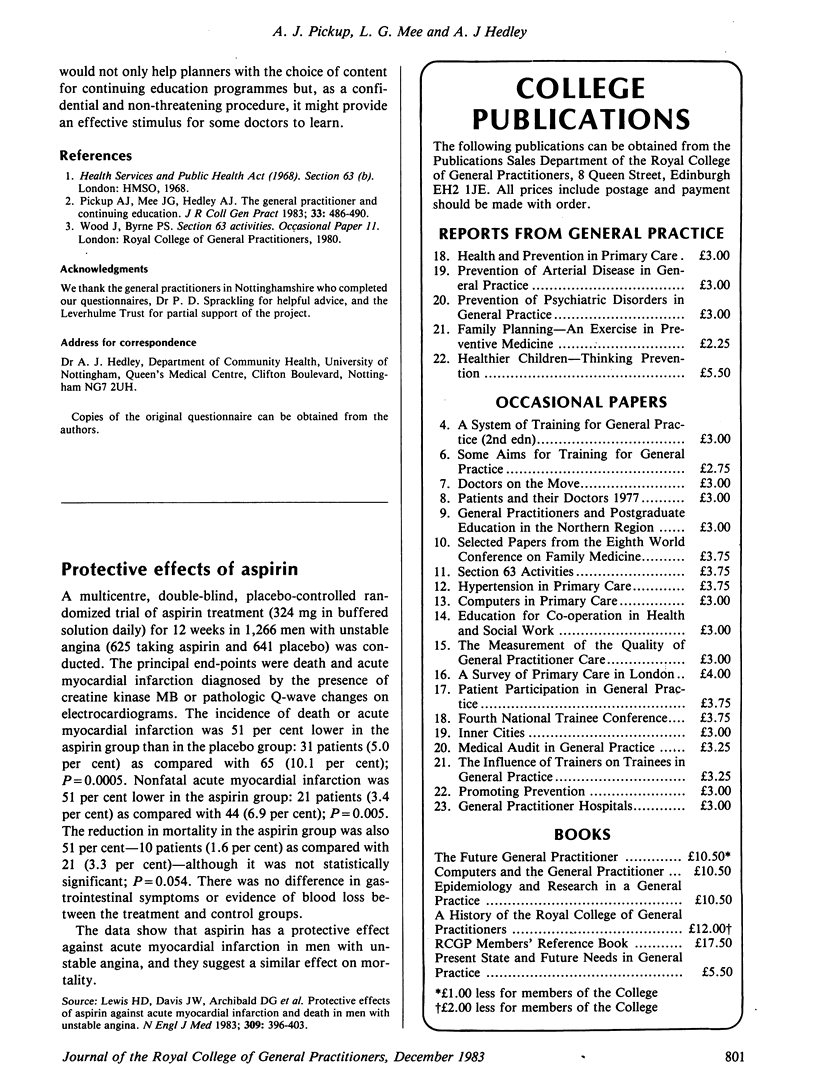Abstract
An earlier study showed that low attendance at section 63 courses of continuing education was not explained by dissatisfaction with content or methods employed in these programmes. In this enquiry to the same sample of 105 general practitioners, several additional factors were studied related to enjoyment of professional role, practice skills and perceived obstacles to continuing education. Thirty-seven per cent of respondents said that their work was less than fully enjoyable and one in 20 found no enjoyment; similarly, 30 per cent were dissatisfied with their organizational skills but for neither of these factors was there any difference between attenders and non-attenders. Half of the sample found difficulty in keeping up to date, and in this finding the proportion who were attenders was significantly higher than non-attenders. Eighty-two per cent had encountered obstacles to their continuing education, in particular lack of time, practice commitments and the need to preserve family life. Recommendations for an ideal system of continuing education included high acceptance of self-assessment exercises as a means of identifying areas of educational need.
Full text
PDF


Selected References
These references are in PubMed. This may not be the complete list of references from this article.
- Lewis H. D., Jr, Davis J. W., Archibald D. G., Steinke W. E., Smitherman T. C., Doherty J. E., 3rd, Schnaper H. W., LeWinter M. M., Linares E., Pouget J. M. Protective effects of aspirin against acute myocardial infarction and death in men with unstable angina. Results of a Veterans Administration Cooperative Study. N Engl J Med. 1983 Aug 18;309(7):396–403. doi: 10.1056/NEJM198308183090703. [DOI] [PubMed] [Google Scholar]
- Pickup A. J., Mee L. G., Hedley A. J. The general practitioner and continuing education. J R Coll Gen Pract. 1983 Aug;33(253):486–490. [PMC free article] [PubMed] [Google Scholar]


